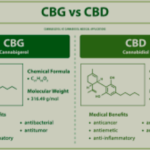Health technology, or HealthTech, is at the forefront of revolutionizing the healthcare industry. Just as the latest technologies have evolved the escape room games, similarly they have impacted several other aspects of the world around us.
With continuous innovations, HealthTech is transforming patient care, diagnostics, treatment options, and overall healthcare management. This article delves into some of the latest advancements in HealthTech, highlighting their impacts on the healthcare ecosystem.
Telemedicine and Virtual Care
Telemedicine has recently become a popular concept, particularly following the Covid period. It involves using digital platforms to provide clinical services remotely.
Key Advancements
– Video Consultations: Patients can now consult with healthcare providers from the comfort of their homes.
– Remote Monitoring: Devices such as wearable sensors monitor patients’ vital signs in real-time, sending data directly to healthcare providers.
– AI-Powered Chatbots: These assist in preliminary diagnosis, triaging patients based on their symptoms and medical history.
Impact
– Accessibility: Telemedicine makes healthcare accessible to those in remote or underserved areas.
– Cost-Effectiveness: It lowers the need for in-person checkups. Consequently, it reduces travel expenses and waiting times.
– Continuous Care: Patients with chronic conditions benefit from continuous monitoring and timely interventions.
Artificial Intelligence in Diagnostics
Artificial Intelligence (AI) is making significant strides in diagnostic processes, offering faster and more accurate results.
Key Advancements
– Imaging and Pathology: AI algorithms analyze medical images (like X-rays, MRIs, and CT scans) and pathology slides with remarkable accuracy.
– Predictive Analytics: AI models predict disease outbreaks and patient outcomes by analyzing vast amounts of data.
– Genomics: AI aids in sequencing genomes faster and identifying genetic markers for diseases.
Impact
– Early Detection: AI improves the early detection of diseases, leading to better treatment outcomes.
– Precision Medicine: Tailored treatments based on individual genetic profiles are becoming more common.
– Efficiency: It reduces the overall burden on healthcare professionals as several tasks get automatized.
Wearable Technology
Wearable devices have evolved from simple fitness trackers to sophisticated health monitors.
Key Advancements
– Smartwatches and Fitness Bands: Track heart rate, sleep patterns, physical activity, and more.
– Medical-Grade Wearables: Devices like continuous glucose monitors (CGMs) and ECG monitors provide real-time health data.
– Implantable Devices: Pacemakers and insulin pumps that communicate with healthcare providers.
Impact
– Proactive Health Management: Wearables empower individuals to take control of their health by providing real-time data.
– Chronic Disease Management: Continuous monitoring helps in managing chronic conditions more effectively.
– Data-Driven Insights: Aggregated data from wearables contribute to large-scale health studies and personalized healthcare strategies.
Robotics and Automation
Robotics and automation are transforming surgical procedures and hospital operations.
Key Advancements
– Robotic Surgery: Robots assist in minimally invasive surgeries with high precision.
– Automated Medication Dispensing: Robotics ensure accurate and timely dispensing of medications.
– Hospital Automation: Robots handle routine tasks like cleaning, transporting supplies, and delivering meals.
Impact
– Precision and Accuracy: Robotic surgery reduces human error and improves surgical outcomes.
– Operational Efficiency: Automation streamlines hospital operations, reducing workloads and operational costs.
– Patient Safety: As medical operations get automatized, errors are reduced. Thus is improves the overall patient health and safety.
Blockchain in Healthcare
Blockchain technology is being integrated into healthcare to enhance data security and interoperability.
Key Advancements
– Secure Data Sharing: Blockchain ensures secure and transparent sharing of patient records across healthcare providers.
– Supply Chain Management: Tracks the origin and movement of pharmaceuticals and medical devices.
– Smart Contracts: Automates administrative processes like billing and claims.
Impact
– Data Security: Blockchain protects patient data from breaches and unauthorized access.
– Transparency and Traceability: Enhances the integrity and traceability of medical supplies and pharmaceuticals.
– Efficiency: Reduces administrative burdens and speeds up processes through automation.
3D Printing in Medicine
3D printing is making waves in the creation of customized medical devices and implants.
Key Advancements
– Custom Prosthetics: Personalized prosthetics tailored to individual patients.
– Bioprinting: Printing of tissues and organs for research and potential transplants.
Impact
– Personalization: 3D printing allows for highly personalized medical solutions.
– Cost Reduction: Lowers the cost of custom devices and prosthetics.
– Innovation in Treatment: Paves the way for new treatments and surgical techniques.
Conclusion
The latest advancements in HealthTech are reshaping the healthcare landscape, making it more efficient, accessible, and personalized. From telemedicine to AI, wearables, robotics, blockchain, and 3D printing, these technologies are not only enhancing patient care but also paving the way for future innovations.
As HealthTech continues to evolve, it holds the promise of addressing some of the most pressing challenges in healthcare. Ultimate, it can lead to better health outcomes and improved quality of life for all.
Feel free to submit more guest posts through Links Building Servcies - Best Prices. Buy Author Account / 1$ Guest Post Here




![How to transfer money from Robinhood to bank account? [Steps]](https://hollywoodrag.com/wp-content/uploads/2024/08/Banking-Across-Europe.jpg)
















